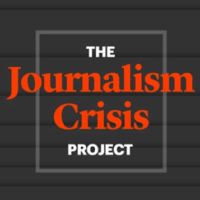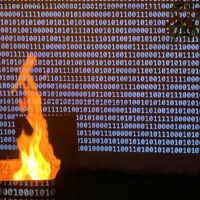-
Cryptocalypse Now!
Cryptocurrencies are collapsing across the etherspace. Neil and Jonathan talk to Izabella Kaminska, founder of the Blind Spot and keen cryptowatcher, about Terra, Luna and Tether, the death spiral of the stablecoins, and whether anyone in the real world should care.
-
Cambridge Analytica reborn? Private spy agency weaponizes Facebook again
For all the public outcry, official probes and hearings, financial penalties, apologies and proposed regulations, Facebook remains the world’s foremost surveillance tool–weaponized in all manner of malevolent ways by any number of hostile elements.
-
Russia investigating ISIS-style Ukrainian “social ad”
The unsettling video portrays a mock execution of a Russian soldier.
-
Censorship by algorithm does far more damage than conventional censorship
Journalist Jonathan Cook has a new blog post out on his experience with being throttled into invisibility by Silicon Valley algorithmic suppression that will ring all too familiar for any online content creators who’ve been sufficiently critical of official western narratives over the last few years.
-
Graphika: The Deep State’s Beard for Controlling the Information Age
Semi-state actors play a very important role in today’s online landscape and in the 1970s, Graphika employees would likely have been working directly for the CIA.
-
Opaque algorithms are creating an invisible cage for platform workers
We live in a world run by algorithms. Nowhere is this more apparent than with platform companies, such as Facebook, Uber, Google, Amazon, and Twitter.
-
OTF – The “independent” internet freedom organization that makes all your favorite privacy apps–is staffed full of spies
While the OTF presents itself as independent internet freedom activists, their funding, staff, history and choice of targets all point to the conclusion that they are a digital weapon being used against Washington’s enemies.
-
#NoMore censorship of Africa’s roving digital Army of Peace
The removal of Twitter accounts advocating for peace in the Horn of Africa shows the connection between the state and big tech companies. Freedom of speech is an illusion when communications are controlled by corporations which follow governmental dictates.
-
The Local Journalism Initiative: a proposal to protect and extend democracy
What remains less appreciated is that the founders of the United States regarded creating a free press a policy issue of the greatest possible importance.
-
Algorithms of injustice: Artificial intelligence in policing and surveillance
If anything, the use of computer algorithms to guide police appears only to entrench and exacerbate existing biased policing practices.
-
Totalitarian cyber-creep: Mark Zuckerberg in the Metaverse
Never leave matters of maturity to the Peter Panners of Silicon Valley. At their most benign, they are easily dismissed as potty and keyboard mad.
-
Are we really Luddites just for logging off? We can be wiser about boundaries for technology
We can be wiser about boundaries for technology.
-
The Facebook team that tried to swing Nicaragua’s election is full of U.S. spies
A tacit agreement between the government and Facebook appears to have been made: you can keep the profits, but we control the message. As such, a cynic might wonder what functional difference there is between Facebook and the national security state.
-
Facebook does the U.S. government’s censorship work in Nicaraguan elections
A few days before the Nicaraguan presidential elections on November 7, Facebook and other social media companies began closing down many of the pages used by Sandinista supporters in their campaign to re-elect President Daniel Ortega.
-
Dossier No. 46: Big Tech and the current challenges facing the class struggle
We cannot give ourselves the luxury of being technophobic, of negating the importance of technologies and their potential in the struggle. At the same time, we cannot believe in the idea that technology in itself will result in advances for the organised working class.
-
Who owns our data?
We need a model of ownership that recognizes the collective interest we have in how personal data is used, avoids the costs of private exploitation by individual firms, and does not slip into authoritarian forms of state control.
-
America’s broadband crisis: the making of a twenty-first-century cartel
In January 2020, as the Verizon settlement was being worked out, the city released the NYC Internet Master Plan, which declared: “The private market has failed to deliver the internet in a way that works for all New Yorkers.”
-
You won’t believe the clickbaity chaos of Chinese apps
For China’s tech companies, user growth is increasingly all about having the pushiest push notifications.
-
Streamers versus socialism
Dennis Broe reports on how the streaming services are attempting to subvert government-financed and often more progressive film and television production
-
A day in the death of British justice
The reputation of British justice now rests on the shoulders of the High Court in the life or death case of Julian Assange.




















